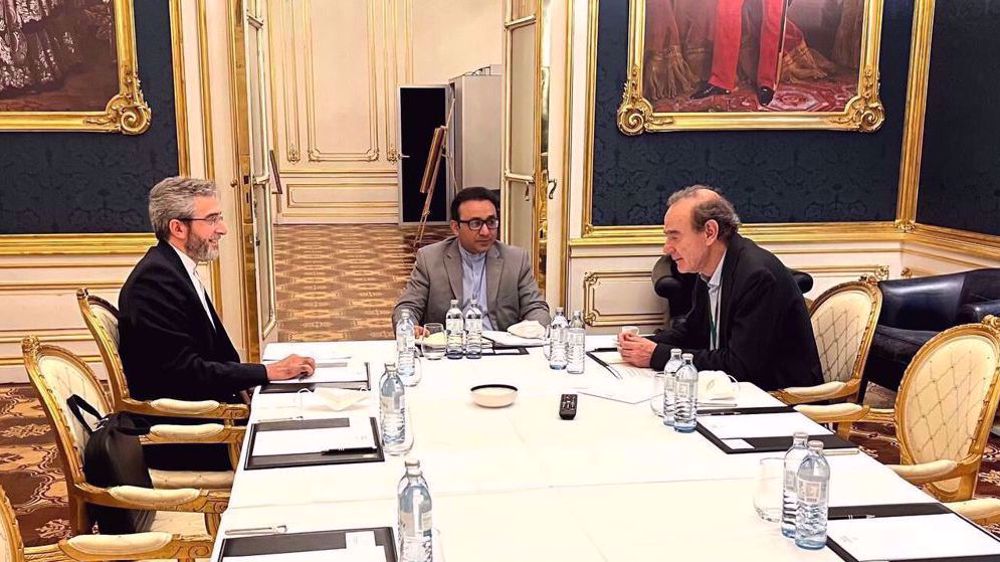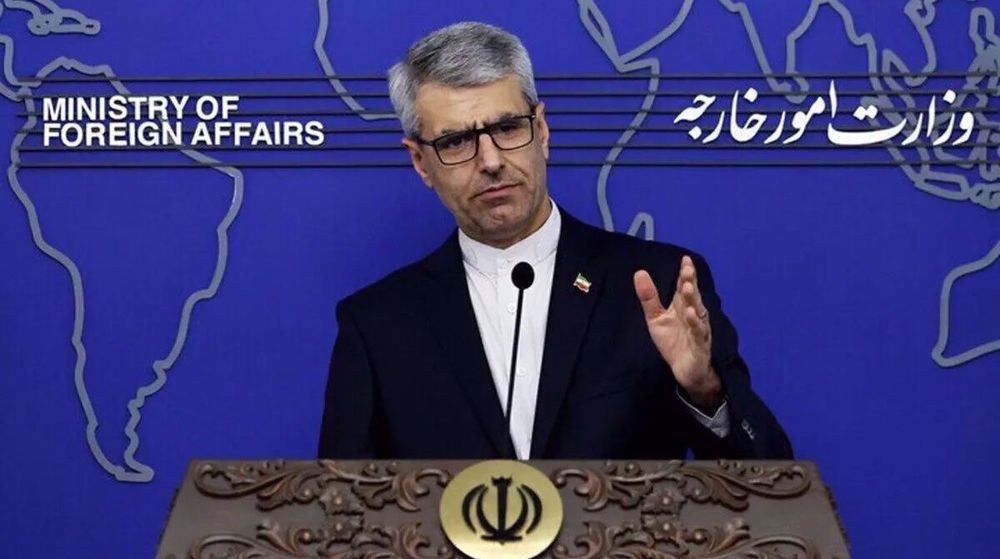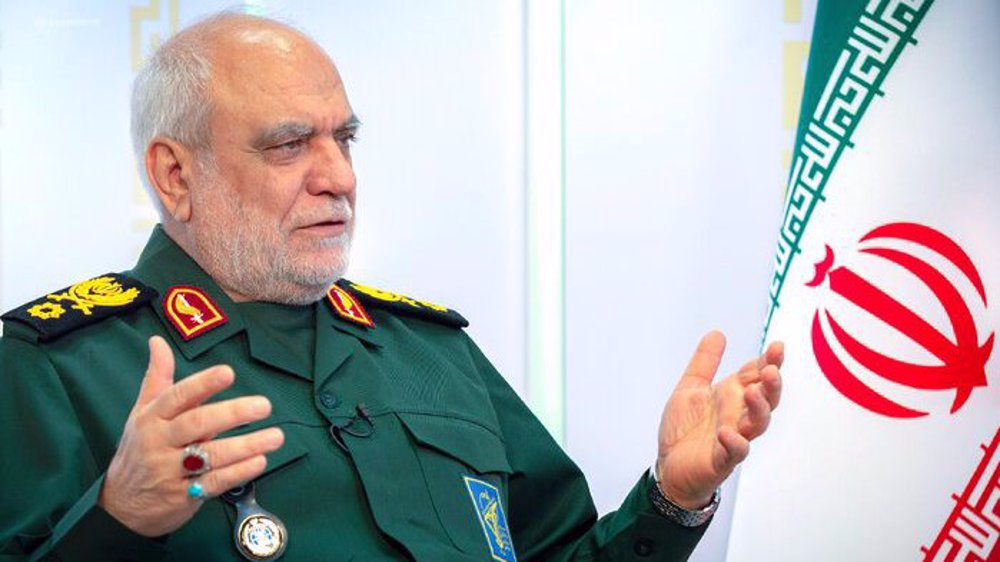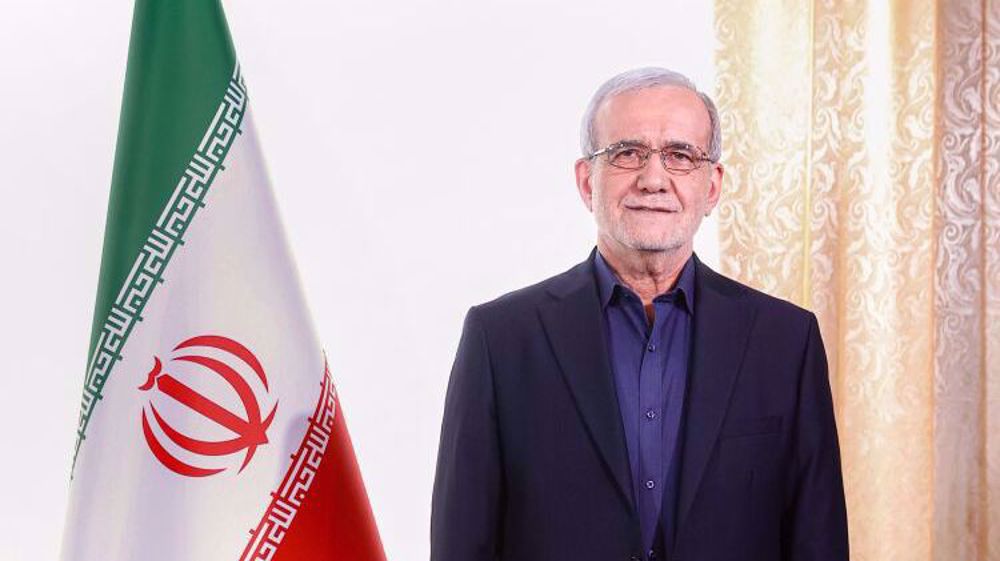Talks on removal of anti-Iran sanctions, JCPOA revival resume in Vienna
Talks over the removal of anti-Tehran sanctions and reviving the Iran nuclear deal have resumed in the Austrian capital of Vienna, as Iran's lead negotiator Ali Bagheri Kani meets with the European Union’s deputy foreign policy chief, Enrique Mora.
Iran’s state media announced on Thursday that Bagheri Kani had “met and conferred” with Mora as part of long-running negotiations on the removal of sanctions against the Islamic Republic.
Bagheri Kani was also reported to have held an earlier meeting with the Russian delegation to the talks, which are between Iran and the P4+1 group of countries.
Mikhail Ulyanov, Russia's top negotiator to the Vienna talks, said in a post on his Twitter account that he had “frank, pragmatic and constructive” negotiations with the head of the Iranian delegation on the revival of the 2015 deal, officially known as the Joint Comprehensive Plan of Action (JCPOA), to resolve the last outstanding issues.
“Met today with the Head of the delegation of #Iran at the #ViennaTalks on #JCPOA Dr. Bagheri Kani. As always we had a frank, pragmatic and constructive exchange of views on ways and means of overcoming the last outstanding issues,” Ulyanov wrote.
Bagheri Kani and his accompanying delegation left for the Austrian capital on Wednesday to resume the talks aimed at reviving the accord and removal of anti-Tehran sanctions.
Iran’s chief negotiator announced in a tweet that he was heading to Vienna "to advance the negotiations," calling on the US to "seize the opportunity.”
"The onus is on those who breached the deal and have failed to distance from ominous legacy," Bagheri Kani said. "The US must seize the opportunity offered by the JCPOA partners’ generosity; ball is in their court to show maturity and act responsibly."
The former US administration led by President Donald Trump unilaterally withdrew from the JCPOA in May 2018, followed by the reinstatement of crippling sanctions on Iran under the so-called "maximum pressure campaign."
After exercising "strategic patience" for one year, Iran gradually started to scale back its commitments under the deal in 2019, holding both the US and Europeans responsible for it.
The talks to revive the landmark deal and have sanctions on Iran removed started in April last year with the participation of the remaining parties to the deal — France, Germany and Britain. While the parties noted progress in multiple rounds of talks, the indecisiveness shown by Washington prevented any significant breakthrough.
Last month, the talks moved to the Qatari capital of Doha in a different format, with Tehran and Washington holding indirect talks mediated by the European Union. The one round again failed to produce any desired result due to excessive demands of the US.
Iran to switch on cameras after accusations dropped
In a related development on Thursday, the head of the Atomic Energy Organization of Iran (AEOI) said the surveillance cameras installed by the International Atomic Energy Agency (IAEA) under the JCPOA will be turned on and activated by Tehran on condition that the entire allegations against the country are dropped.
Responding to a question posed in an interview by the official news agency IRNA as to whether Iran would turn on other monitoring cameras, Mohammad Eslami said the cameras that we switched off were operating beyond Iran's obligations under the UN agency's safeguards agreement.
“The cameras that we have deactivated were related to the JCPOA or according to its legal term, beyond safeguards; these cameras were installed along with the [implementation of] the JCPOA in order to measure the limits, capacity and the nuclear activity of Iran with it,” Eslami said.
“As you did not remain in the JCPOA and did not fulfill your obligations and withdrew from it, there is no reason for us to unilaterally continue a quasi-obsolete contract,” he added.
Asked a question on whether the cameras will be turned on and activated again if an agreement is reached on the JCPOA, Eslami said, “The condition … is that they drop all the allegations, and we announce today that until they return to their commitments and these alleged and false claims are withdrawn, no camera will be installed.”
Eslami stressed that the allegations served as an excuse to exert maximum pressure against Iran for years, noting, “Our position has invariably been that the accusations should be dropped.”
The head of the AEOI concluded that the Islamic Republic is looking for a good agreement, and a good agreement means respecting the interests of the Iranian people.
UK's police arrest ex-prince Andrew over sex scandal linked to Epstein
Iran elected vice-chair of UN Special Committee on Charter
Iran envoy says decision made to exchange ambassadors with Egypt
Russia continues to develop relations with Iran: Kremlin
VIDEO | Friends of Palestine meet at UN in Vienna
Trump’s war-mongering on Iran sparks sharp rebuke from US lawmakers
Top American columnist warns of Netanyahu exploiting Trump for Iran war
VIDEO | Press TV's news headlines










 This makes it easy to access the Press TV website
This makes it easy to access the Press TV website